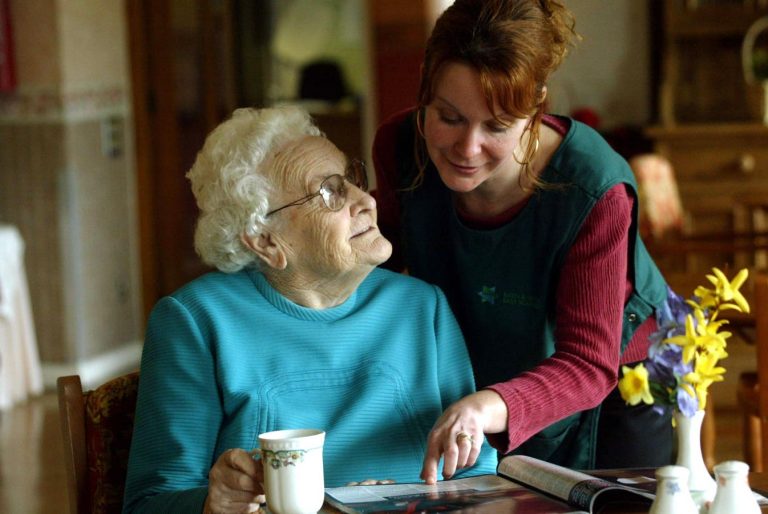In homes across America, a quiet crisis is unfolding. The “sandwich generation” – adults simultaneously caring for their children and aging parents – finds itself increasingly stretched thin, facing a perfect storm of caregiving responsibilities, financial pressures, and growing uncertainty about the future of elder care.
Who Are the Sandwich Generation?
They are typically middle-aged adults in their 40s and 50s who balance full-time careers while raising children who may still be at home or in college. Now, they’re adding another layer of responsibility: managing the care of aging parents whose health is declining. This three-tiered caregiving role creates unprecedented stress on time, finances, and emotional well-being.
Financial Insecurity Looms Large
One of the most pressing concerns for the sandwich generation is financial stability – not just their own, but their parents’ as well. Many aging parents planned their retirement based on market projections and life expectancies that may no longer hold true.
“I lie awake at night wondering what happens when Mom’s savings run out,” says J, 47, who works full-time while caring for two teenagers and her 78-year-old mother with early-stage dementia. “Between college tuition for my kids and the increasing cost of my mother’s care, our family savings are being drained from both ends.”
Financial markets have experienced significant volatility in our current political climate, leaving many retirees with diminished nest eggs whether temporarily or in the long run. When these savings fall short, the burden often falls to adult children who must decide whether to tap into their own retirement funds or kids’ college savings. This diminishing of the sandwich generation’s own financial security could have very far reaching effects, not only for their own retirement plans down the road but for their own children as well, the legacy of the family elders who need long term care.
The Impending Caregiver Shortage
Compounding these financial worries is growing anxiety about who will actually provide hands-on care for aging parents. The elder care industry relies heavily on immigrant labor, with foreign-born workers making up a significant portion of home health aides, non-medical home care workers, housekeepers, nursing assistants, and other essential caregiving roles.
Current political rhetoric and policies threatening to deport non-citizen workers – even those with legal work permits – have raised serious concerns about a potential caregiver crisis. There is already a caregiver shortage in the field of elder care. Many caregiver agencies have trouble attracting and maintaining staff to meet the growing needs of our aging population. This looming shortage comes at a time when the number of Americans needing elder care is projected to reach unprecedented levels, creating what some experts call a “silver tsunami” of care needs that our current systems are unprepared to handle. Almost 40% of home health aides, for example, are foreign born whether with legal work visas, temporary protected status, green cards or other legal means of being allowed to work.
If large numbers of these workers are forced to leave the country, families of elders in need of help could face:
- Significantly higher costs for the remaining care workers
- Longer waiting lists for in-home and facility-based care
- Reduced quality of care due to understaffing
- Greater pressure on family members to provide direct care themselves
The Emotional Toll
Beyond logistics and finances, the sandwich generation faces profound emotional challenges. Many find themselves making life-altering decisions for parents who once cared for them, while simultaneously trying to be present for their own children.
“I feel like I’m constantly failing someone,” admits M, whose father recently moved in with him after a stroke. His father can no longer live alone and can’t afford assisted living. “When I’m helping Dad with his physical therapy and needs, I’m missing my daughter’s soccer game. When I’m at work trying to maintain the income we all depend on, I worry about both of them. There’s never enough of me to go around.”
Practical Steps Forward
Despite these daunting challenges, there are proactive measures the sandwich generation can take:
Plan ahead before crisis hits. Have frank financial and care preference discussions with parents while they’re still able to participate fully in the conversation. It is especially important to examine all financial resources and debts aging parents have. This is the time for aging parents to be completely transparent about what they have and what security may exist in any investments. This includes their portfolios, any assets that could be liquidated, and getting tax advice on the consequences of selling anything they have and might need to convert into cash.
Share the Burden. Resist the struggle to handle everything alone because you are “the responsible one”. When possible, create a family care coordination plan that distributes responsibilities among siblings, extended family, or close friends. Consider using technology to coordinate schedules and share updates. Ask for help.
Advocate for policy change. The caregiver shortage and financial pressures on families caring for aging parents are policy issues as much as personal ones. Contact elected representatives about supporting legislation that protects the elder care workforce, provides tax relief for family caregivers, and expands affordable care options. All of these are potentially at risk at this time.
Seek support. Join caregiver support groups – either in-person or online – to share resources, advice, and emotional support with others in similar situations. A family caregiver is not alone in the sandwich generation struggle, as this is a widespread issue
As our population ages and family must assume responsibility for the care and safety of aging parents, the challenges facing the sandwich generation will only grow more pronounced. By acknowledging these pressures and working toward both personal and policy solutions, we can help advocate for the security we need. Ideally, we can ensure that caring for our elders doesn’t mean sacrificing the well-being of multiple generations in the process.
Read the full article here









